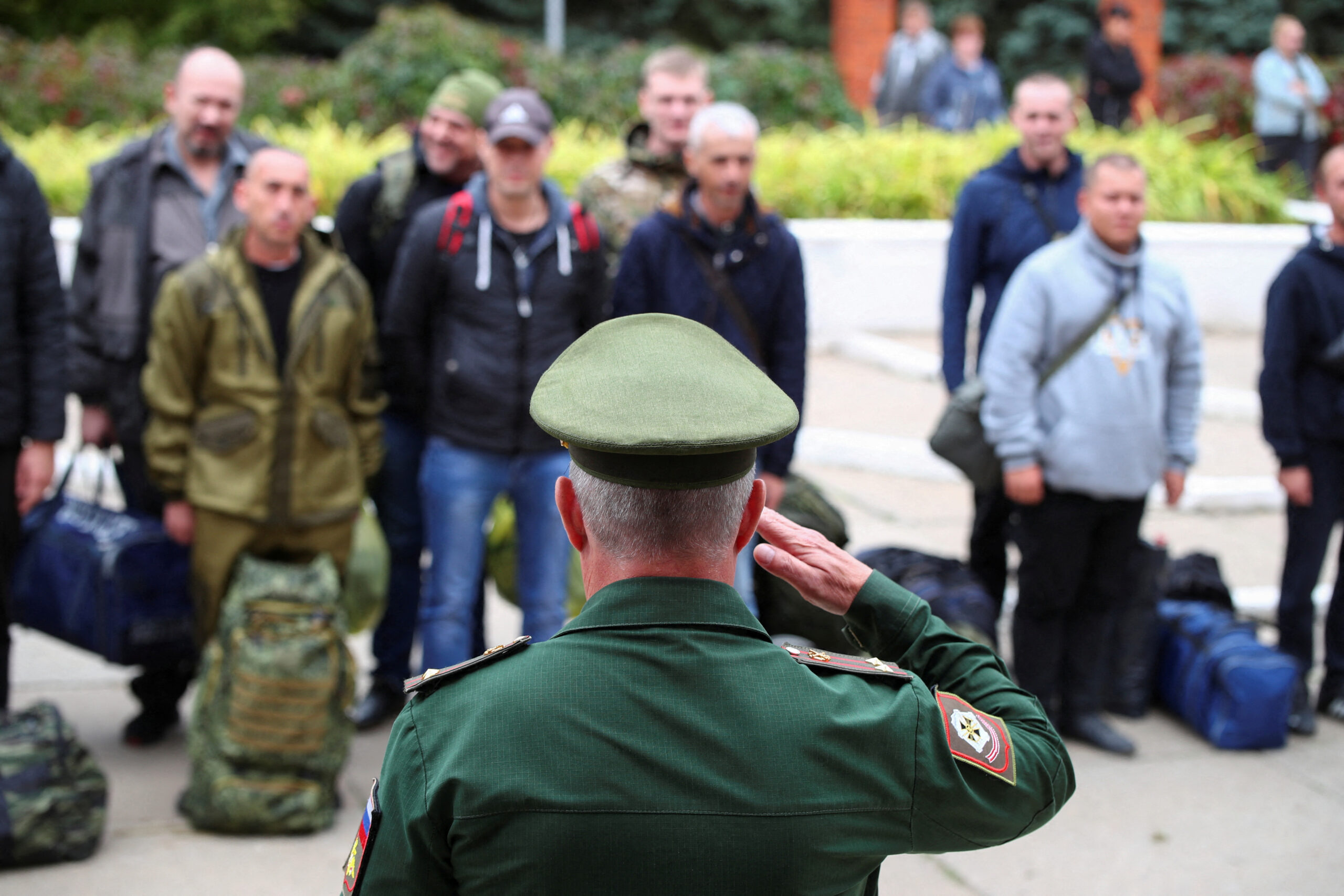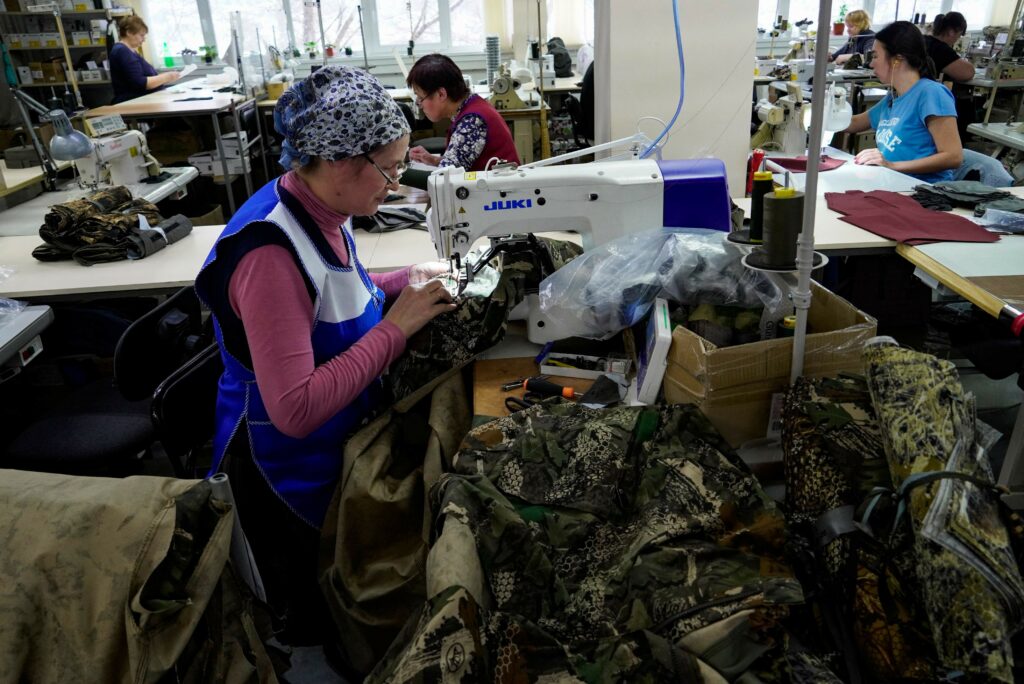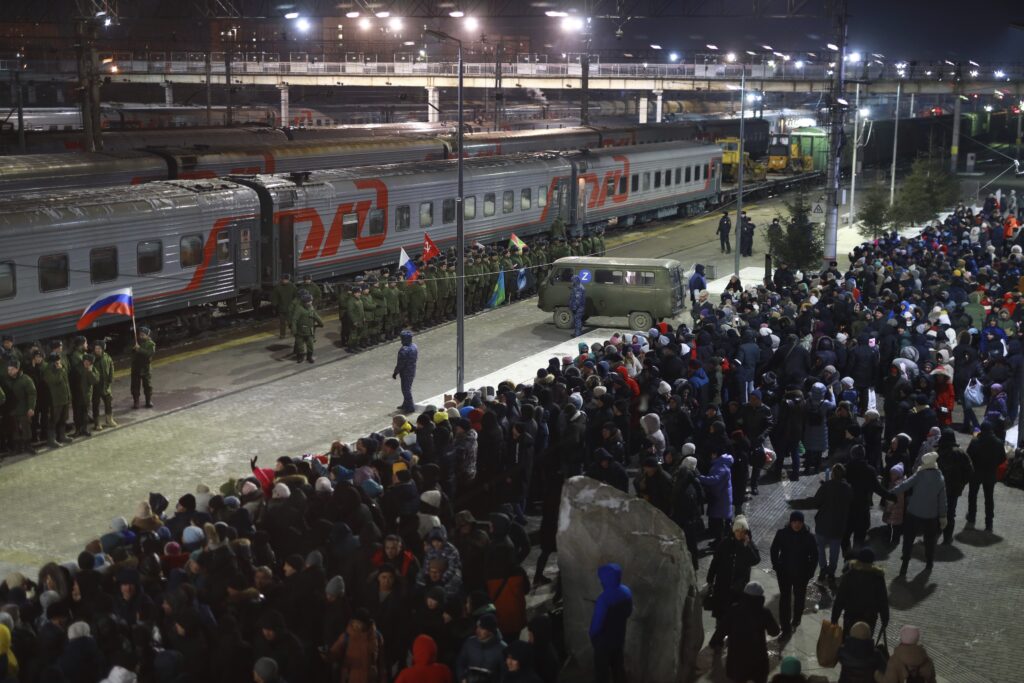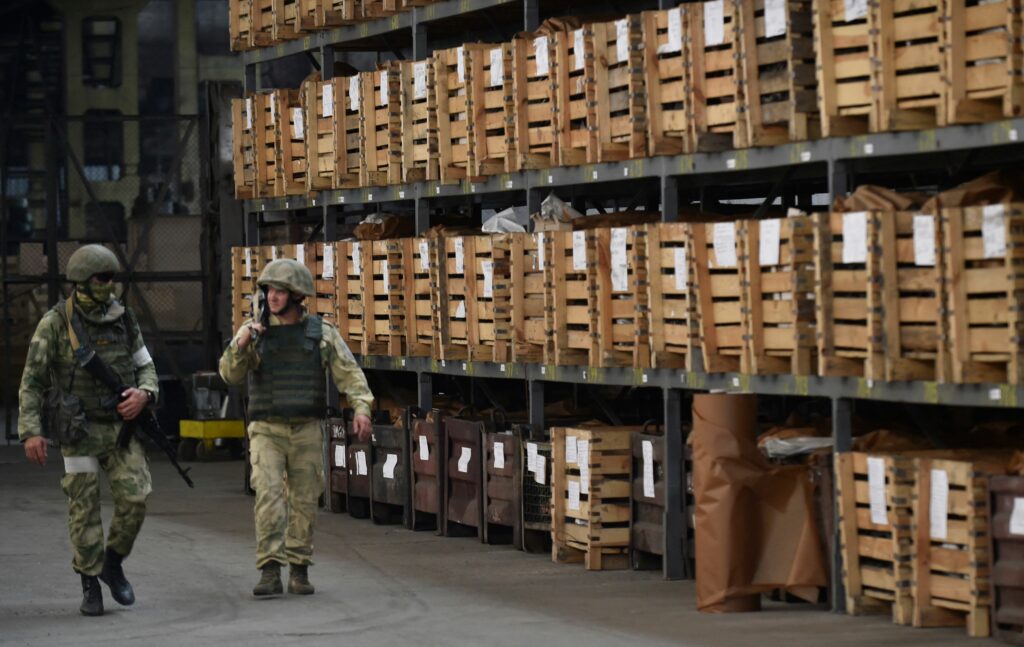At the end of September, a landmark event in the modern history of Russia took place: the so-called ‘partial mobilisation’ was announced. This event ended forty years of ‘peaceful’ existence of the Russian society since the war in Afghanistan (although mobilisation was covert even then). The word ‘peaceful’ refers to the condition of the Russian society, which continued to live with the belief that there were no threats to its habitual way of life. Quite clearly, this feeling does not always coincide with real political action.
The announcement of a ‘partial’ mobilisation came after six months of a ‘strange conflict’, when the military action on the country’s border seemed like a repetition of the campaign in Syria, presented as successful in the news, and an enormous proportion of the Russian population watched the televised missile strikes and the reports delivered by masked officers. The frenzied clamour of TV news lulled millions of Russian viewers: in May, three quarters of Russians believed that the ‘operation’ was progressing ‘successfully’ (73%).
Readiness for mobilisation
However, one cannot say that official recognition of the crisis came as a complete surprise. Between May and August, the proportion of those who believed that the conflict was protracted and would last beyond six months rose from 44% to 55%. At the same time, the expectation of a long-term ‘special operation’ hardly correlated with anxiety, and remained on the periphery of public attention. The society accepted the fact that the operation was dragging on and this fact did not affect the level of support. Age remained the only factor that significantly differentiated attitudes towards the invasion. It would seem that this fact should have restrained commanders’ willingness to carry out mobilisation. If potential recruits are largely sceptical, this could undermine the morale of even the combat-ready units. Nevertheless, Russia’s political and military elites actively promoted the activation of the military reserve. However, as it existed for many years as something that seemed a vestige of the Soviet era, the attitude to military registration was also dismissive: very few people seriously considered the threat of being drafted in the ‘hour of danger’.
Many political analysts and journalists point out that the announced mobilisation destroyed the social contract that existed between the authorities and the society. This hypothesis seems highly controversial. On the one hand, the sheer possibility of the existence of any kind of contract is questionable since it would imply an equal position for the parties to the transaction. In Russian realities, one can hardly imagine a situation where the authorities are interested in public opinion, i.e. exactly the opinion, rather than a potential negative reaction that could jeopardise an initiative conceived by the power structures. More often than not, society is presented as a resource, and its objective condition is measured on a scale of readiness to carry out the government instructions. That is why sociological studies commissioned by the Russian authorities, such as the regular publications by FOM or VCIOM surveying agencies, set behavioural objectives: to record the level of satisfaction for various stimuli offered (either in the survey or in real life) and to assess the potential level of irritation in response to new restrictions.
On the other hand, almost from the very beginning of the hostilities, the Russian society was quite pessimistic about the prospects of its own involvement in a full-scale conflict. During focus groups held back in spring, Russians recognised that the government could take away far more than it did at the start of the conflict. Of course, this thought did not meet with popular enthusiasm, but the respondents seemed willing to offer the required level of loyalty. When asked how support could be expressed, they answered: letters, petitions, a sense of solidarity. But «of course, we will not go and grab a gun.» Here, obviously, they referred to voluntary service in the army. The authorities were expected to raise taxes for the ‘special operation’, and while mobilisation was not a tangible thing, it was often mentioned among the possible ‘worst-case’ scenarios for the conflict. When talking about mobilisation, Russians usually thought of a general full-scale mobilisation. Thus, the current ‘partial mobilisation’ allowed the authorities to push the boundaries of normality a little further by incorporating, albeit not without difficulty, another ‘hybrid’ format of confrontation into the daily life of Russian society.
Confusion and approval: two strategies adopted by Russian men
The announcement of mobilisation triggered a rise in anxiety in Russian society. This fact was documented by surveys conducted by several research organisations in parallel. Most importantly, this increase was particularly noticeable among women. It is less connected with the fear of losing their lives and health, but more with the fear of losing their loved ones, a family member, as well as their usual routine and normal life. This was not the first time that such fears were aggravated. Immediately after the start of the ‘special operation’, surveys also recorded an increase in anxiety among women, while showing hardly any difference in sentiments among men.
In October, the level of personal tension began to decline for both men and women. Although still higher than usual, it clearly shows that the society is increasingly adapting to the situation in line with the government rhetoric, and even significant events such as this one quickly go past their peak. At the same time, mobilisation remains the most significant public event and the anxiety it has triggered is reported by most respondents.

If we look at a more detailed break-down of the range of emotions evoked by the mobilisation, we will see that the most typical men’s reactions, as opposed to the anxiety shared predominantly by women, include ‘pride in Russia’, ‘enthusiasm’ and ‘satisfaction’. Also notable is the higher proportion of male respondents who are indifferent to the event.

If we single out the cohort of men around the conscription age, i.e. from 18 to 45 years old, we can see a certain shift towards negative attitudes: in this case, there is a visibly higher share of respondents experiencing a shock, and the share of anxiety and indignation is slightly higher. Those who are most disillusioned and frightened by mobilisation, and yet have sufficient resources, constitute the core of the group seeking to leave the country. Border guard statistics suggest that hundreds of thousands of working-age citizens have already left Russia. An analysis of the age structure of people who have left, based on self-completed statements (over 1800) in the «Border Control» Telegram channel, offers the following results: the median age of those who left the country (and who answered the survey) was 31 as of 11 October 2022 and a half of all new emigrants are 27−35 years old. Unfortunately, since more detailed demographic data are not available, we cannot get a more accurate description of the group which is ‘voting with their feet’. However, we can quite reasonably assume that most of these respondents are fleeing from major cities, leaving their careers and established lives behind. They are the most solvent stratum of the Russian economy: for example, according to the National Bureau of Credit Standing, the 30-to-40 age segment has historically accounted for the largest share of mortgage loans.
And yet, for the most part, the sentiments among men remain markedly less anxious than among women. This is particularly characteristic of men from smaller localities. The proportion of old age pensioners in such places is approx. 5 percentage points higher than in large cities, but the difference in opinions is probably not solely determined by age. Residents of smaller towns are more likely to get the news from public TV channels and are more dependent on the government. These people also tend to have less diverse social networks, showing particular trust in the government. This is expressed, for example, in the fact that they have a higher level of trust in power structures (army, police, special services), the church, courts and regional authorities. The male population of small towns and settlements has a higher share of manual workers and clerical staff, and their median per capita income is noticeably lower than that of the inhabitants of relatively large urban settlements. For this reason, material incentives are more important to the former group. As such, they may perceive the participation in the ‘special operation’ as a duty and an opportunity to feel involved in ‘something bigger’.

Perception of news from the front in the context of mobilisation
When asked about mobilisation, men were generally calmer and more ‘patriotic’ than women. Those who reported a negative attitude towards mobilisation were more likely to be overcome by anxiety, fear and shock, with passive acceptance of an unpleasant reality more likely to be generated by this set of emotions. In other words, in emotional terms, the governmental decision did not trigger active rejection. A slightly different range of feelings is observed in relation to news from the front. The recent Ukrainian counter-offensive in the Kharkiv region, which continued in other regions of the country, provoked strong indignation. The news of the Russian retreat tends to be perceived with resentment, a desire to ‘fix’ the situation, paving the way for resentment in case the Ukrainian army progresses with success.

Importantly, the information bubble seems thick: those respondents who, in their own perception, closely followed the battles near Kharkiv, were more likely to source the news from television. Regression analysis reveals that the share of people who were confident in the success of the ‘special military operation’ among those who closely followed the counter-offensive of Ukrainian forces is even higher than among those who are not familiar with these events. At the same time, the growing dissatisfaction with the course of the conflict (the share of those who consider the advance of the ‘special operation’ to be successful has dropped from 73% in May to 53% in September) may predispose Russians more favourably towards peace talks. On the other hand, those who consider the rate of advancement of the ‘special operation’ satisfactory and those who believe that its goals have almost been achieved are in favour of continued military action. In the long term, a reduced support for military action could also affect the approval of mobilisation if it is prolonged.

Overall, attitudes towards mobilisation among men remain predominantly unemotional or are even perceived in terms of ‘patriotism’ and ‘civic duty’. Anxiety and fear prevail mostly among women. At the same time, the news about the Ukrainian counter-offensive provokes stronger feelings, predisposing the respondents towards dissatisfaction: anger and indignation. Failures at the front mobilise public discontent and mean that the continuation of the conflict becomes less viable in the respondents’ eyes.









